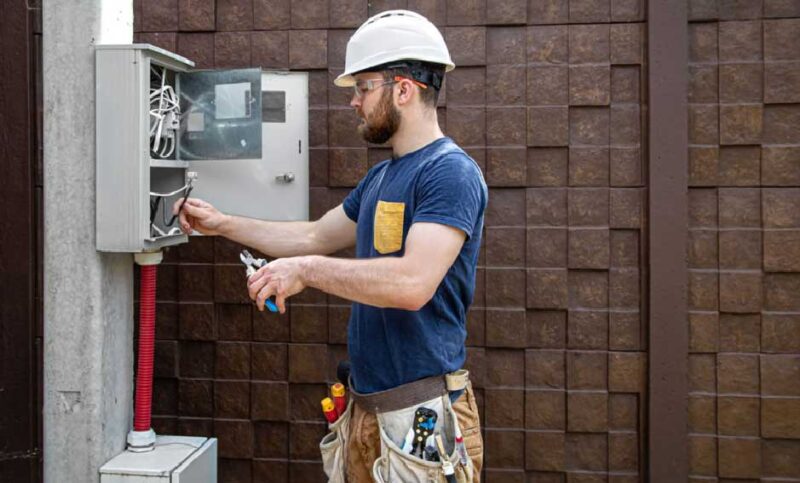Knowledge of the electrical system in any home is key to safety and efficiency. The technical details might feel overwhelming to many homeowners; however, a basic understanding of a few basics will help maintain a safe living space. This post will discuss some essentials and best practices to keep the electrical system running optimally.
Basic Components of an Electrical System
Any Tauranga electrical contractor operating in residential or commercial zones must adhere to specific wiring standards, often dictated by building regulations. There are a few core components that every electrical system in a home uses. These components include the service panel, circuits, wiring, and outlets. It is the home’s hub, distributing electricity to various circuits—several circuits in each circuit supply power to different areas or devices.
Wiring is the glue that holds everything together and ensures that electricity reaches its destination. From power outlets to power outlets, provide easy access to the power supply for daily items. Awareness of these factors makes identifying potential problems easier and realising when professional help is needed.
Regular Inspections Are Important
Periodic inspections play a significant role in ensuring the electrical system is healthy. As time passes, the wiring can become weak or have burnt circuits. These can be safety hazards, such as sparks and electrical fires. Even if you are proactive, it’s crucial to identify issues early to avoid costly repairs that could jeopardise your safety. Therefore, schedule a regular inspection.
A qualified electrician will inspect the service panel, examine any frayed wiring casing, and check all outlets to ensure they work correctly. This preventive mindset can be a cost saver and a calmer mind.
Recognising Warning Signs
Identifying warning signs of electrical problems or issues is essential. Problems can be lurking behind flickering lights, trips of the circuit breaker, or buzzing sounds. Immediate action should be taken if the outlets are warm to the touch or a burning smell is present.
Do not take these signs lightly; otherwise, they could become an even more serious threat. Contact a professional electrician as soon as you experience one. This information will help you avoid problems and prevent injury.
Factors to Consider for Energy Efficiency
Energy use efficiency over the life cycle is becoming crucial for homeowners and the like. Lowering our electricity consumption saves us money and positively impacts the environment. Everything from using an energy-saving LED bulb and unplugging devices after use to investing in energy-efficient appliances can make a difference.
Innovative technology that tracks energy usage and implements methods to reduce consumption is also an option. These systems are designed to ensure that no energy is wasted. An eco-friendly home prevents energy efficiency from being a secondary concern.
Safety Precautions to Follow
Caution is crucial when handling electricity. Follow a few necessary safety precautions to avoid accidents. Do not plug too many devices into the same wall outlet or extension cord, which can cause overheating and fires. Always follow the instructions for using appliances and keep them out of the water.
Always turn off the power at the main panel before attempting any electrical work. Using tools with insulated handles is also beneficial to prevent electric shock. Remember: Hiring a qualified electrician for the above tasks is the safest option.
Electrical Upgrade Planning
With the advancement of technology and the increasing demand for electricity in the house, planning is key if you hope to upgrade and refine your electrical system for modern needs. The upgrade may include new circuits, service panels, or outlets.
It’s essential to speak with a professional before doing any upgrades. They can evaluate current requirements and suggest modifications that will enable them to cope with future needs. Avoid overloading and maintain a safe, efficient system with proper planning!
Using a Qualified Electrician
Although homeowners can handle some minor work, most situations require an expert. A licensed electrical expert understands and has the tools to deal with repairs and setups securely. They can also offer guidance on the system’s maintenance and efficiency enhancement.
Carefully selecting an electrician with positive reviews and proper licensing will be more beneficial. An established professional will do the job right and follow the safety codes.
Conclusion
Knowing the fundamentals of a home electrical system allows homeowners to keep their homes functioning safely. This practice includes regular inspections, identifying warning signs, and safety practices to ensure they also consider energy efficiency and plan for making changes to ensure the system and equipment used fit what is needed in the 21st century. While one can manage many of these tasks independently, others necessitate the expertise of a professional to ensure optimal results. Focusing on electrical safety and efficiency results in a comfortable living experience.








